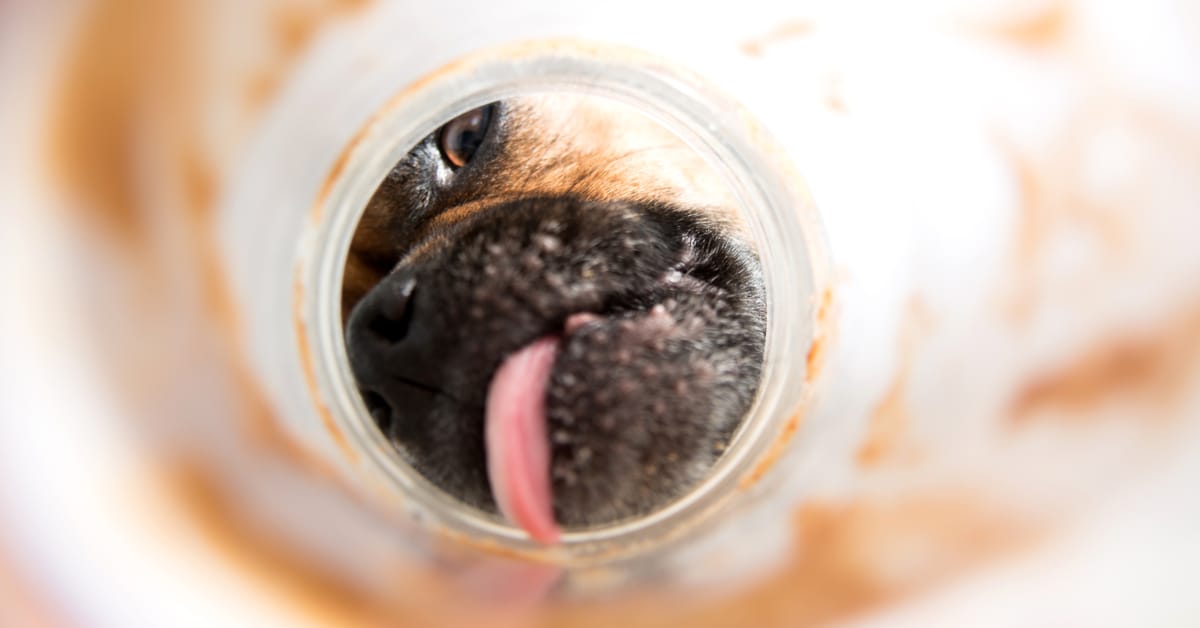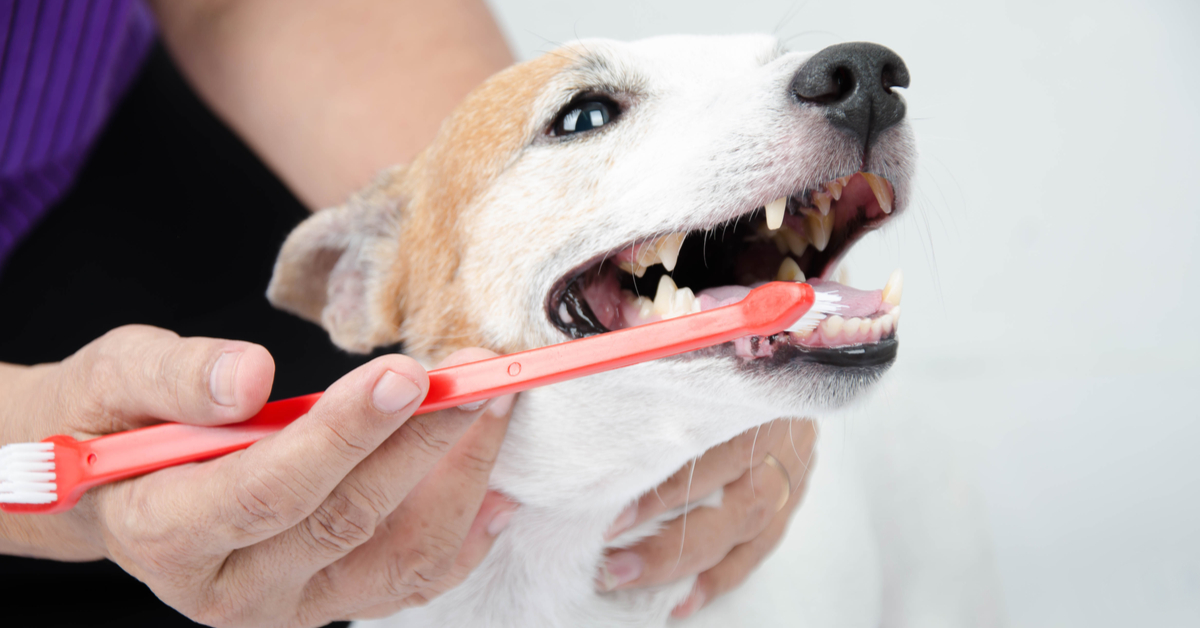It’s not every day a chemical compound gets ‘re-branded.’ Xylitol, an artificial sweetener that is highly toxic to dogs, has a new name: birch sugar.
A poster that was circulating around social media this year reads:
Dog owners: Xylitol is now being marketed as birch sugar. It is highly toxic to dogs, can cause liver failure or death. Xylitol is frequently found in peanut butter and in ice cream.
The claims made in this poster have evidence from the U.S. Food and Drug Administration (FDA) to back it up. Dog parents need to be vigilant when it comes to what sugar-free foods come into their home as xylitol can have devastating effects on dogs.
If you haven’t heard of xylitol before, read on to learn everything you need to know about this common sugar substitute.
What Is Xylitol?

As mentioned, xylitol is sugar alcohol extracted from birch bark that is commonly used as a sugar substitute in many human foods labeled as “sugar-free.” Renee Schmid, DVM, Ahna Brutlag, DVM, MS, DABT, DABVT of the Pet Poison Helpline and VCA Hospitals explain:
“Commercially, most xylitol is extracted from corn fiber or birch trees. Although it has been used as a sugar substitute for decades, its popularity has increased dramatically in the last decade due to its low glycemic index and dental plaque fighting properties.”
Its use in carbohydrate-rich foods is good for diabetics and people who follow low glucose diets.
While xylitol may be useful for your oral health and blood sugar levels, the effects of this natural sweetener on your dog are indeed life-threatening.
Even in small amounts, xylitol poisoning can cause:
- hypoglycemia (low blood sugar)
- seizures
- liver failure
- death
According to the James L. Voss Veterinary Teaching Hospital at Colorado State University, a dog who has ingested something containing xylitol absorbs it quite rapidly, causing a large release of insulin. Seek immediate veterinary care if your dog has eaten something with xylitol in it.
What food is xylitol in?

Although many dog parents are adept at checking the ingredient list on food labels (especially peanut butter) for xylitol, some don’t know to now look for “birch sugar” too.
That’s what makes this re-brand such a big deal. When products start using unfamiliar terms we aren’t looking out for, we could make a critical mistake. As a result, someone could buy a new jar of peanut butter to smear on a dog puzzle for their pup without realizing it contains xylitol.
You can often find xylitol/birch sugar in items like:
- chewing gum/sugarless gum
- peanut butter
- toothpaste
- mouthwash
- candies
- breath mints
- pudding
- baked goods
- many items marked “sugar-free,” “low carb,” or “low calorie”
- cough syrup
- gummy vitamins
- dietary supplements
What to Do If Your Dog Eats Birch Sugar

As mentioned, seek immediate veterinary care if your dog has eaten something with birch sugar. For an on-demand response, call the Animal Poison Control Center at 888-426-4435 or the Pet Poison Helpline at 855-764-7661.
Xylitol works quickly to lower your dog’s blood sugar to dangerously low levels. According to VCA Hospitals, it can set in as quickly as 10-60 minutes after ingestion. As a result, don’t delay getting your dog cared for and treated if xylitol is in their system.
Signs of xylitol poisoning & treatment
Signs of xylitol poisoning include:
- Vomiting
- Weakness
- Lack of coordination/difficulty walking or standing
- Lethargy
- Tremors
- Coma
- Collapse
There is no antidote to xylitol poisoning. In order to effectively treat xylitol poisoning, timing is key. Your veterinarian will induce vomiting if no clinical signs are showing yet. They will also perform blood work and keep your dog at the hospital overnight for supervision to ensure blood glucose and liver function stay normal.
How to Avoid Xylitol Poisoning

You can prevent xylitol poisoning by being mindful of where you keep products that contain xylitol. Keep products that use xylitol out of your dog’s reach in order to prevent them from accidentally consuming it. Never use human toothpaste when brushing your dog’s teeth because it contains xylitol for its ability to prevent tooth decay.
And read labels! There is a chance that something marked “gluten-free” or has fewer calories at the store contains birch sugar/xylitol.

